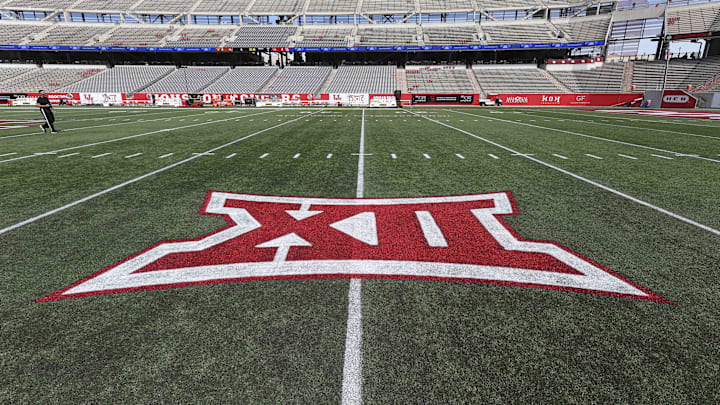As ESPN reported on Wednesday, coach-to-player communications for all Power 4 college football games this season have been taking place on unsecure frequencies, and Texas Tech had requested a report from the Big 12 to ensure the integrity of it's games were not compromised.
On Thursday, the Big 12 released a statement that assured both teams and fans that a review has been conducted, and that the issue with helmet communications frequencies has not affected the gameplay or outcome of any Big 12 action this season.
"Following the industry-wide concerns surrounding helmet communications, the Big 12 conducted a review of conference games and helmet communications processes to address any issues member institutions raised regarding this matter," the Big 12 said in a statement issued Thursday. "The review showed that at no point was any Big 12 competition compromised."
Furthermore, the Big 12 has established that all helmet communication programs in the conference now have been updated by helmet communication provider GSC to provide encryption, and that schools may make the choice individually to use either CoachComm or GSC devices for coach-to-player communication. Sources allege Texas Tech has decided to move forward with a different coach-to-player system with encrypted communication provided by CoachComm when they take the field this weekend against Iowa State.
It was also noted in the report that numerous Big 12 athletic directors had been under the impression that the NCAA was using the same encrypted system as the NFL, and that a source at one Big 12 school told ESPN that his staff purchased and used independent technology to successfully hack into their own coach-to-player communication frequency during a practice.
It was also noted, however, that the only frequency compromised was the coach-to-player line that can only be heard when a coach is deploying the button to speak, and that it does shut off 15 seconds before the play clock hits zero. One Big 12 staff member alleges it would be hard for an opponent to gain a strategic advantage from hacking the feed.
"There's no real advantage," one Big 12 chief of staff argued. "One, you're speaking a different language. Two, if you think you'd be able to enact in real time what they say and try to do it on the field, you're delusional. You're just being your stereotypical paranoid football coach. You can't relay it to the kids fast enough."
